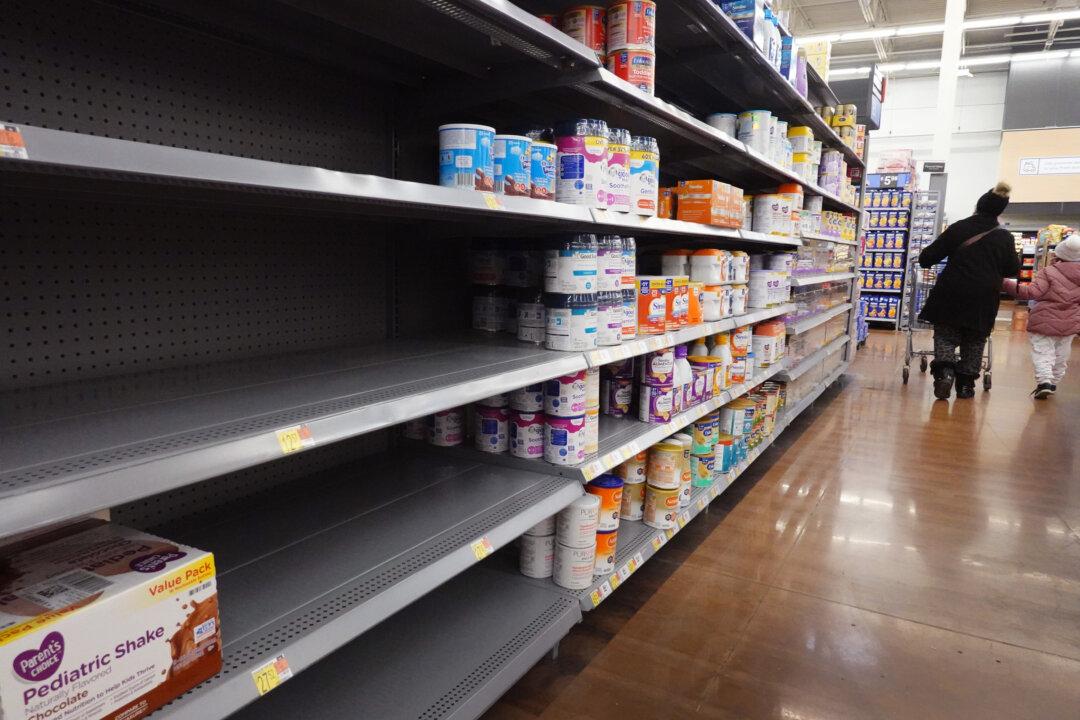Some pediatricians are warning against making homemade baby formula as a nationwide shortage of the product continues, triggering panic among parents.
Pediatrician Tanya Altman told news outlets that baby formula, which is designed to mimic a mother’s breast milk, is “a very complex nutrient-dense product made from years of development and clinical trials specifically for the needs of growing and developing babies.”





